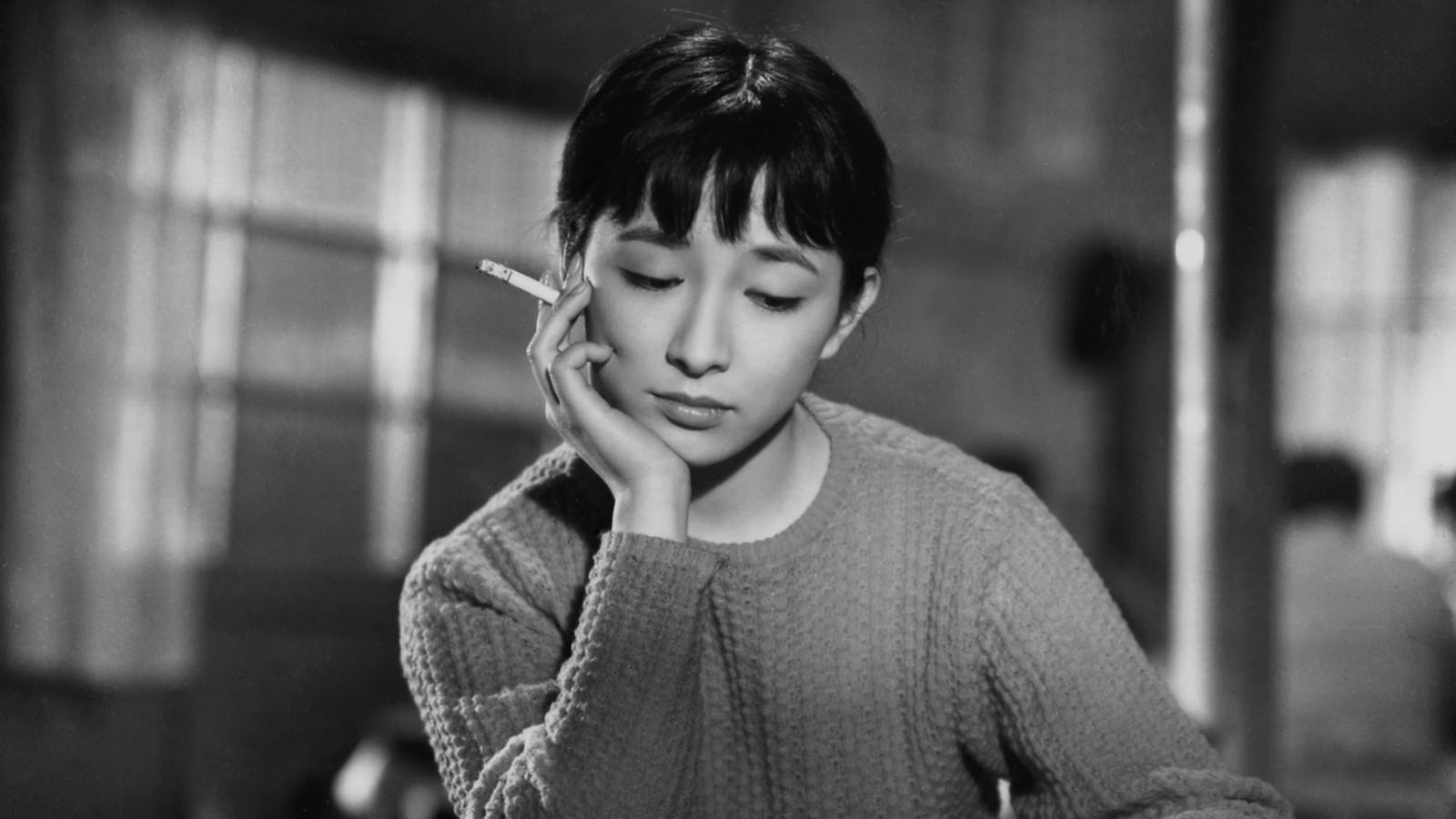Ozu in NYC and LA

Two of Yasujiro Ozu’s most desolate films will screen on opposite coasts tonight. Kino Slang programmer Andy Rector will present Woman of Tokyo (1933) as the first half of a double feature at the Echo Park Film Center in Los Angeles (and the second film on the bill is Night at the Crossroads (1930), which Jean-Luc Godard once called Jean Renoir’s “most mysterious film”). Starting today in New York, Film Forum launches a weeklong run for a new 4K restoration of Tokyo Twilight (1957).
Rector has posted a passage from a 1988 essay in which Kiju Yoshida quotes Ozu’s explanation for making Woman of Tokyo a silent film two years after sound had been introduced to Japanese movie audiences. “I know Japanese films will become all talkies one day,” Ozu said, “but before they do I think we should create a new silent form.” Yoshiko Okada plays Chikako, a woman who sells her body at night to pay for her brother’s studies. When the brother, Ryoichi (Ureo Egawa), finds out, he throws himself in front of a train. Woman of Tokyo is “one of Ozu’s most devastating and oblique films,” writes Rector. “We’ve found no explanation for the film’s odd length of forty-seven minutes—no industrial, or exhibition-related explanation. Perhaps the length is wholly the result of the story and the arrested way of its telling. A shorter film for the lives ruined or cut short; tragedy becomes brevity, and brevity becomes tragedy. The final tracking shot of an empty sidewalk and full gutter seems to draw a hyphen rather than a period on the story.”
The scene in which Ryoichi confronts Chikako and slaps her before running out into the night “always haunts me whenever I watch Tokyo Twilight,” writes Moeko Fujii in an evocative piece at the Notebook. As Chikako looks at herself in a mirror, the expression on her face evolves “from stricken despair to resolve” and “we hear the echo of an earlier title card: ‘Did I put myself through so many hardships, only to be slapped by you?’” The two sisters in Tokyo Twilight have their moments of reflection as well. Takako (Setsuko Hara) is trapped in an unhappy marriage and Akiko (Ineko Arima) questions her will to live when the truth about their mother, long believed to have gone missing, is revealed. For Moeko Fujii, the “acute bleakness and power of this film, I think, is that as things happen—with each calamity, each test of mettle, each failure to step up—the film asks whether telling the truth would’ve helped things. Would things be that different even if they’d bothered to be honest with each other? What would that have changed?”
The series of dire turns in Tokyo Twilight “make it the darkest and most sensationalist of Ozu’s career, and the public and critical community reacted negatively,” writes Michael Koresky in the essay accompanying our release. “Yet today the film retains an enormous dramatic power, perhaps because of those very divergences from the Ozu oeuvre: with its shadowy downtown setting, populated by smoky mahjong parlors and Ginza bars, Tokyo Twilight feels like an entirely new milieu for the filmmaker. And its evocative, almost sinister, landscape is matched with an intense narrative that has the grip and eventual catharsis of classical tragedy.”
For news and items of interest throughout the day, every day, follow @CriterionDaily.



